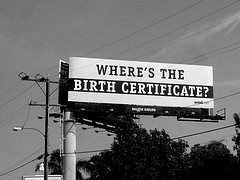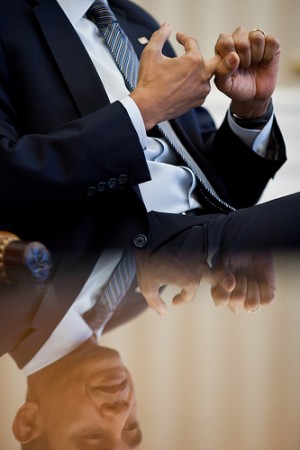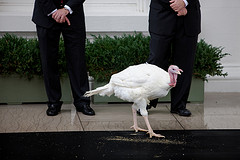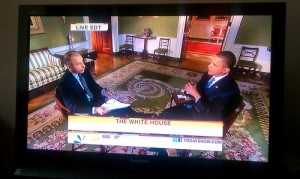More on race and perception, though this time, the issue is not what people see– it’s what they know about President Obama’s ancestry. In “For Birthers, Obama’s Not Black Enough“, Melissa Harris-Perry wonders if the President’s lack of connection to “the historical variation of blackness that is uniquely and indisputably American” is part of what makes him suspect to those who doubt his citizenship:
The American slave system disrupted the ability of enslaved Africans to retain or pass along their ethnic identities. Igbo, Ashanti, Akan, Yoruba and Hausa became interchangeable units for sale. While slaves nurtured fragments of cultural, religious and familial traditions, much of the specificity of their African experience was surrendered to an imagined and indistinct notion of “Africa.” Moreover, the law did not initially recognize slaves or their US-born children as American. So enslaved Africans were women and men literally without a country, defined solely in terms of their labor value. Their descendants eventually achieved citizenship, but to be an American black, a Negro, is to be a rejected child who nonetheless clings to her abusive father because she knows no other parent. To be a black American descended from slaves is to lack, if not a birth certificate, then at least a known genealogy—to have only a vague sense of where one comes from, of who one’s ancestors were and of where one belongs.
In this sense, Obama is not very black. He is not a Negro. As a black man, President Obama’s confident and clear knowledge of his lineage is precisely the thing that makes his American identity dubious. Unlike most black people, he has easy access to both his American and his African selves.







